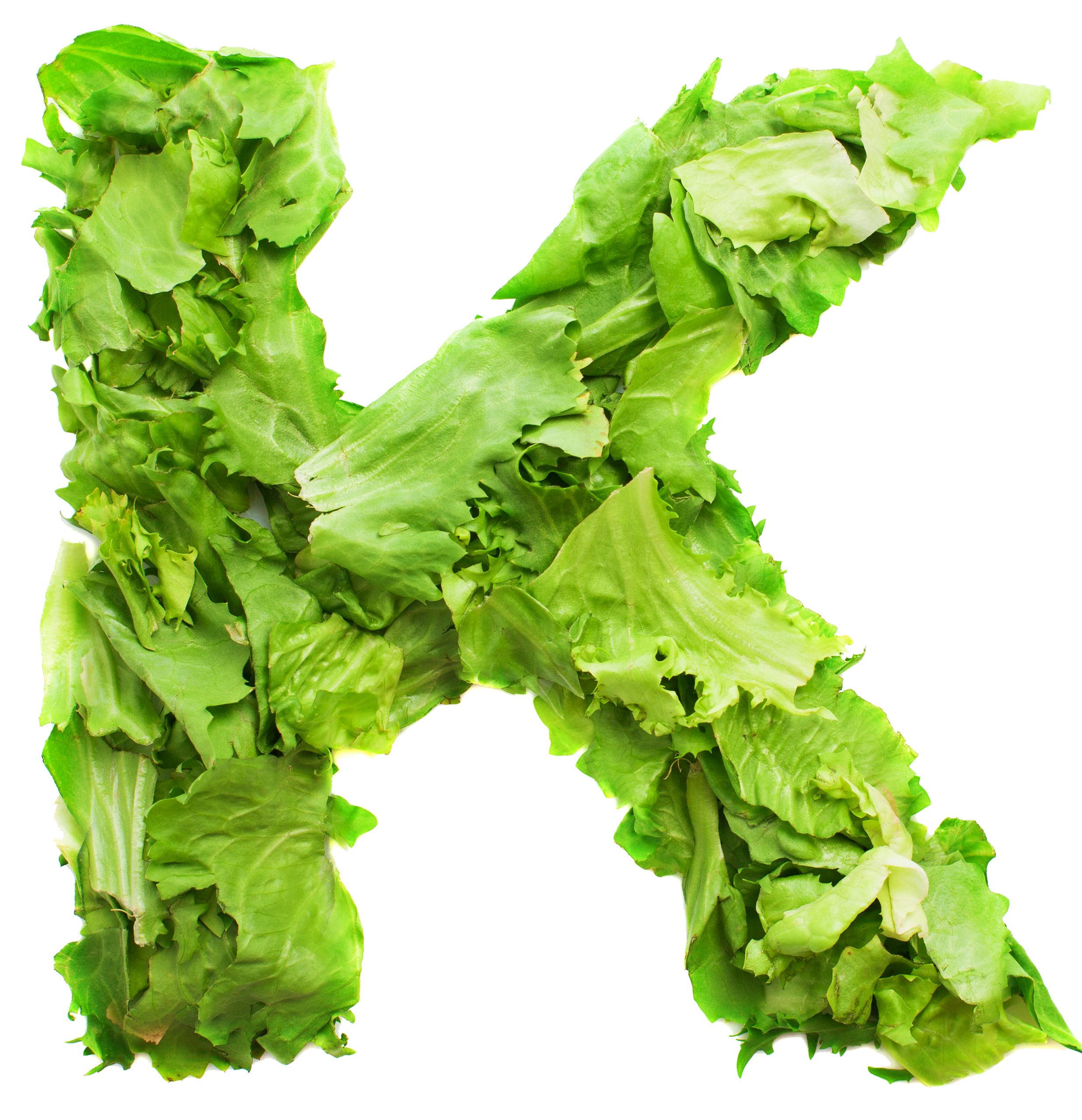5 Health Benefits Of Vitamin K [with food sources, dosage and more]

Vitamin K isn’t just for clotting blood and preventing excessive bleeding. It has plenty of other health benefits. Read on to find out.
While it doesn’t get a lot of press, Vitamin K is an essential nutrient that is not only good for our bones but also good for our cardiovascular and mental health. The benefits of vitamin K are numerous and this blog will look at just some of the health benefits of Vitamin K.
Remember the last time you were bleeding because of scraped knees or paper cuts or sliced a finger while chopping? Do you know how long it took for the scratch to stop bleeding, maybe a minute, or maybe you wrapped it in a bandage and didn’t notice until it was gone hours later? Have you ever wondered how? Do you know what is responsible in our body for these actions?
Vitamin K is one of the 13 vitamins in the human body and is essential for blood clotting, without it the body would be unable to stop bleeding.
Vitamin K may not be as well-known as other vitamins. You could possibly mention several good sources of Vitamin A, B, or C but Vitamin K, on the other hand, is often overlooked, despite its long list of benefits.
| Do you know? – Vitamin K gets its “K” from the German word “koagulation.” When you consider the importance of vitamin K in the human body, this makes perfect sense. |
What is Vitamin K?
Vitamin K is a fat-soluble vitamin founded in 1934 by Henrick Dam. Vitamin K and other fat-soluble vitamins are stored in the liver and adipose tissue (body fat).
The health benefits of vitamin K extend to heart health as well. This is because vitamin K protects your arteries from calcium accumulation, which can increase your risk of heart disease.
There are 2 main types of Vitamin K-
|
Vitamin K is found in the liver, brain, heart, pancreas, and bones, among other places. It is easily broken down and eliminated in the urine or faeces. Because of this, even at large doses, it rarely reaches dangerous levels in the body, as can happen with other fat-soluble vitamins.
Health Benefits of Vitamin K
- Bone health
Vitamin D and vitamin K work together to help the body metabolize calcium, which is necessary for healthy bones. Vitamin D promotes calcium absorption in the small intestine, and vitamin K helps your bones accumulate calcium, which keeps them strong.
Vitamin K is involved in the production of proteins in bone, such as “osteocalcin,” which not only increases bone mineral density in osteoporotic people but also lowers fracture rates.
Without K2, osteocalcin is unable to bind with calcium, the main mineral found in your teeth and bones. Its absence is linked to poorer bone mineral density (BMD) and faster bone deterioration.
Studies show that Vitamin K not only increases bone mineral density but also decreases fracture rates [1].
2)Heart Health
Calcium build-up in the arteries surrounding your heart is a major cause of heart disease. As a result, anything that can assist in lower calcium build-up could help prevent heart disease [2].
Vitamin K promotes regular calcium metabolism and prevents dangerous calcium plaque build-up (arterial calcification) in the arteries, which is good for heart health [3].
According to one study, every 10 mcg of K2 consumed per day reduced heart disease risk by 9%, and compared to low vitamin K2 intake (less than 21.6 mcg per day), high intake (greater than 32.7 mcg per day) was associated with a 57% lower risk of coronary heart disease mortality. However, more research is needed to define optimal intake levels of vitamin K intake for the prevention of coronary heart disease [4,5].
3)Blood Clotting
One of the most important benefits of Vitamin K is that it aids in the production of Prothrombin and Osteocalcin proteins required for blood clotting, allowing wounds to heal and to produce healthy bone tissue.
People who are taking anticoagulants (also known as blood thinners) to prevent blood clots in the heart, lungs, or legs are regularly told about vitamin K. Vitamin K has the ability to counteract the effects of these blood-thinning drugs due to its blood clotting properties [6].
4)Blood Pressure
Vitamin K, in combination with Vitamin D, may assist to decrease blood pressure by inhibiting mineralization, or the buildup of minerals in the arteries.
This allows the heart to freely pump blood throughout the body. Low vitamin D and K levels were linked to higher blood pressure and a higher risk of hypertension [7].
5) Cognitive Health
Vitamin K levels in the blood have been linked to better verbal episodic memory in older persons.
Two studies used a semi-quantitative food frequency questionnaire(FFQ) to assess vitamin K intake. They discovered that geriatric patients who consumed more vitamin K had less severe subjective memory complaints, better cognition, and fewer behavioural disturbances [8].
Vitamin K foods
Vitamin K is abundant in diet and its deficiency through a balanced diet is uncommon [9].
Vegetables rich in Vitamin K are:
| Food Source | Amount of Vitamin K/100g |
| Kale, cooked | 817 mcg |
| Mustard greens, cooked | 593 mcg |
| Spinach, raw | 483 mcg |
| Broccoli, cooked | 141 mcg |
| Brussel sprouts, cooked | 140 mcg |
Meat products rich in Vitamin K are:
| Food Source | Amount of Vitamin K/100g |
| Beef liver | 106 mcg |
| Pork chops | 69 mcg |
| Chicken | 60 mcg |
| Bacon | 35 mcg |
| Egg Yolk | 34 mcg |
Fruits rich in Vitamin K are:
| Food Source | Amount of Vitamin K/100g |
| Prunes | 60 mcg |
| Kiwi | 40 mcg |
| Avocado | 21 mcg |
| Blackberry | 20 mcg |
| Blueberry | 19 mcg |
| Pomegranate | 16 mcg |
Legumes rich in Vitamin K are:
| Food Source | Amount of Vitamin K/100g |
| Green Beans, cooked | 48 mcg |
| Soyabean | 33 mcg |
| Red kidney beans, cooked | 8.4 mcg |
Adequate Intake of Vitamin K
The adequate intake of vitamin K, both from food and from other sources, is quite low. The majority of people consume adequate vitamin K through their foods [6].
| Age Group | Adequate Intake |
| Infant, 0-6 months | 2 mcg |
| Toddler, 7-12 months | 2.5 mcg |
| Child, 1-3 years | 30 mcg |
| Child, 9- 13 years | 60 mcg |
| Adult man, 19+ years | 120 mcg |
| Adult woman, 19+ years | 90 mcg |
| Pregnant and Lactating women | 90 mcg |
Deficiency
Vitamin K deficiency in adults is uncommon, but it can happen if you’re using antibiotics, which inhibit vitamin K metabolism, or if you have a condition that causes malabsorption of food and nutrients.
Because vitamin K does not pass the placenta and breast milk contains a minimal amount, a shortage in newborns is conceivable. If newborns are not given vitamin K supplements, their inadequate supply of blood clotting proteins increases their risk of bleeding.[10]
Vitamin K deficiency can also result from the following:
- Vitamin K deficiency in the diet.
- A low-fat diet because vitamin K is best absorbed when combined with fat.
- Disorders that impair fat absorption and, as a result, vitamin K absorption (such as blockage of the bile ducts or cystic fibrosis ).
- Certain medications, including anti-seizure medications and antibiotics.
Symptoms of Vitamin K deficiency include [11]:
- Easily bruised skin
- Blood in the urine and/or stool
- Excessive bleeding from wounds, punctures, and injection or surgical sites
- Heavy menstruation
- Oozing from nose or gums
- Bleeding from the gastrointestinal (GI) tract
Toxicity
Of course Vitamin K benefits are numerous. But what happens when you consume too much of it?
Since vitamin K is more readily excreted from the body than other fat-soluble vitamins. Toxicity is not common.
Its toxicity is assumed to be linked to its water-soluble properties. When poisoning occurs, it appears as jaundice, hyperbilirubinemia, hemolytic anemia, and toxicity in babies [12].
Vitamin K Supplements
Make sure you’re getting both vitamin K1 and K2 from vitamin K dietary supplements.
Most multivitamin/multimineral supplements contain vitamin K, though in small amounts. It is also available in dietary supplements that contain only vitamin K or vitamin K in combination with a few other nutrients, most commonly calcium, magnesium, and/or vitamin D.
These supplements typically contain a broader range of vitamin K doses than multivitamin/mineral supplements, with some containing 4,050 mcg or more [6].
Because vitamin K is fat-soluble, it should be consumed with fat-containing meals. These advantages may improve over time. As a result, making consistent habits promotes greater effects. It’s also a good excuse to eat some healthy fats! Avocado, cheese, and almonds are all excellent choices.
Vitamin K is a coagulant and should not be used with antihemorrhagic drugs like Coumadin. People who take medications for heart problems, clotting disorders, or other diseases may need to keep their vitamin K levels in check. They should only use vitamin K supplements if their health care professional recommends them.
Drug Interaction
Vitamin K can interact with several common medications. This includes [6] :
- Warfarin and similar anticoagulants [13]
- Orlistat (a weight-loss drug)
- Bile acid sequestrants
- Antibiotics
- Antacids
Anyone using any of these medications should discuss their vitamin K intake with their doctor.
The best method to guarantee that the body gets enough nutrients is to eat a well-balanced diet that includes plenty of fruits and vegetables. Supplements should only be taken when there is a deficiency and only under medical supervision.
Wrapping up
Vitamin K is a fat-soluble vitamin. Proper blood clotting, maintaining strong bones, and promoting cardiovascular health are just some of the many benefits of Vitamin K.
Vitamin K1 is mostly found in leafy green vegetables, whereas vitamin K2 is mostly found in fermented foods and some animal products.
Other foods strong in vitamin K include kiwi fruit and vegetables such as asparagus, broccoli, and others.
Vitamin K2 may be better absorbed by the body, and some forms may last longer in the blood than vitamin K1. Because of these two factors, K1 and K2 may have different effects on your health.
Vitamin K deficiency is uncommon in healthy adults because a varied and balanced diet provides all of the nutrients required. Certain circumstances, such as chronic sickness and certain drugs, can, however, interfere with your levels. Combine vitamin K sources with healthy fats for optimum absorption.
FAQ
Q: Why is vitamin K given to newborns?
A: Babies aren’t born with enough of this important vitamin, which is needed for blood to clot normally.
Q: Are potassium and vitamin K the same?
A: No, Vitamin K is a vitamin that aids in blood clotting, and Potassium is a mineral.
Q: Do you get vitamin K from the sun?
A: No, you can get Vitamin D from the sun.
Q: Is it safe to take vitamin K every day?
A: When taking the prescribed daily dose of vitamin K, most people might not suffer any negative side effects. However, some people may experience stomach pains or diarrhea.
References
- Pearson, Debra A. “Bone health and osteoporosis: the role of vitamin K and potential antagonism by anticoagulants.” Nutrition in clinical practice : official publication of the American Society for Parenteral and Enteral Nutrition vol. 22,5 (2007),
- Thompson, G R, and J Partridge. “Coronary calcification score: the coronary-risk impact factor.” Lancet (London, England) vol. 363,9408 (2004)
- Geleijnse, Johanna M et al. “Dietary intake of menaquinone is associated with a reduced risk of coronary heart disease: the Rotterdam Study.” The Journal of nutrition vol. 134,11 (2004)
- Gast, G C M et al. “A high menaquinone intake reduces the incidence of coronary heart disease.” Nutrition, metabolism, and cardiovascular diseases : NMCD vol. 19,7 (2009)
- Maresz, Katarzyna. “Proper Calcium Use: Vitamin K2 as a Promoter of Bone and Cardiovascular Health.” Integrative medicine (Encinitas, Calif.) vol. 14,1 (2015)
- National Institute of Health, Vitamin K Fact Sheet for Health Professionals, (2021)
- van Ballegooijen, Adriana J et al. “Joint Association of Low Vitamin D and Vitamin K Status With Blood Pressure and Hypertension.” Hypertension (Dallas, Tex. : 1979) vol. 69,6 (2017)
- Alisi, Ludovico et al. “The Relationships Between Vitamin K and Cognition: A Review of Current Evidence.” Frontiers in neurology vol. 10 239. (2019),
- U.S. Department of Agriculture, Food Central,(2021)
- Centers for Disease Control and Prevention, What is Vitamin K Deficiency Bleeding? (2021),
- Eden RE, Coviello JM. Vitamin K Deficiency. [Updated 2021 Jul 9]. In: StatPearls [Internet]. Treasure Island (FL): StatPearls Publishing; (2021),
- Imbrescia K, Moszczynski Z. Vitamin K. [Updated 2021 Jul 13]. In: StatPearls [Internet]. Treasure Island (FL): StatPearls Publishing; (2021)
![Blue Foods List [with pictures]](https://keevs.com/wp-content/uploads/2023/03/Blue-Foods-List-with-pictures-300x158.png)






